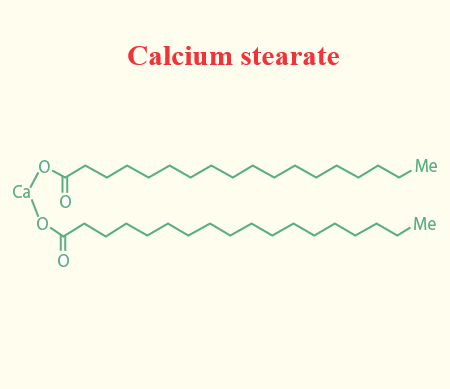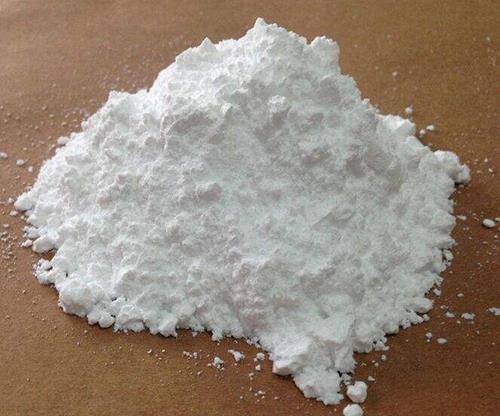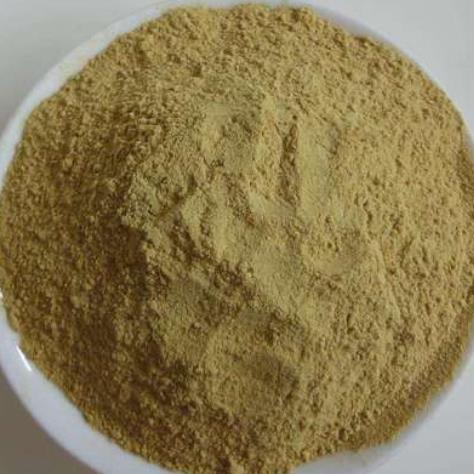Calcium Stearate: Enhancing Poly(3-Hydroxybutyrate) Properties and Sustainable Production Methods
General Description
Calcium stearate serves an important function in CPVC compounds; not only as a stabilizer but also as a lubricant. Since the effects of calcium stearate become apparent early in the fusion process, it is reasonable to expect that its degree of dispersion in the PVC dryblend is important to the performance of the compound.
Traditionally, calcium stearate has been supplied in the form of a very fine powder. Since these calcium stearate particles have an average diameter of only 10 to 20 microns, their dispersion in the PVC dry-blend has never been in question. More recently, however, coarser grades of calcium stearate have become popular. Due to their large particle sizes, these new grades offer significant improvements to the dusting characteristics and to the bulk handling properties of calcium stearate.1
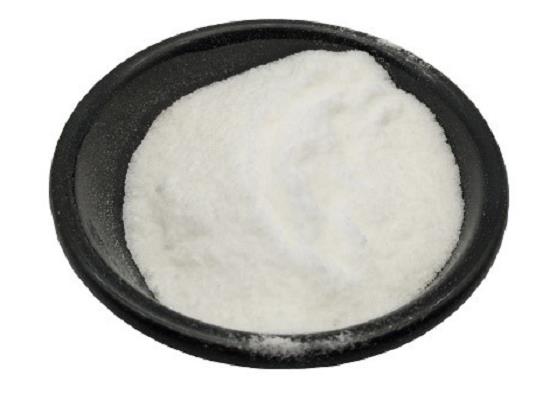
Figure 1. Calcium stearate
Applications in Enhancing Poly(3-Hydroxybutyrate) Properties2
Poly(3-hydroxybutyrate) (PHB) is a short-chain-length poly-hydroxyalkanoate (PHA) and the most available of all PHAs. PHB is currently tested for food packaging, drug-delivery systems, tissue engineering or medical device manufacturing owing to its promising properties such as biodegradability, biocompatibility, bioresorbability and non-toxicity. Being a thermoplastic polymer, PHB can be processed by melting using common methods employed in the manufacturing of commodity plastics such as extrusion, compression or injection molding. Melt processing methods used in industrial-scale facilities comply with the ecological concerns because they are sustainable, inexpensive, high-productivity and solvent-free techniques.
However, the thermal and shear sensitivity of PHB together with the high melting temperature, which is close to the onset degradation temperature, are major barriers that restrict its melt processing for biomedical and engineering applications. Besides, it is characterized by a high crystallinity and stereo-regularity which confer poor processability and brittleness.
Calcium stearate (CS) is employed as a lubricant in many thermoplastic polymers because it is a low-cost solid powder, easily dispersible in polymers, showing a good thermal stability at 200 ◦C, the melt processing temperature of most thermoplastic polymers. And it was approved to be used as a lubricant and anti-adherent agent in several pharmaceutical formulations.
Denis Mihaela Panaitescu and colleagues used a new method to control the properties of PHB by using cheap calcium stearate (CS) as a lubricant and decomposition catalyst in melt-mixed PHB-CS compounds. CS is composed of a metallic cation, which promotes PHB degradation, and a hydrophobic anion that improves the compatibility with PHB and processability. An environmentally friendly melt mixing technique was employed to obtain the PHB-CS compounds. Incorporation of 0.5 or 5 wt% CS reduced the melt viscosity and molecular weight of PHB, decreased the melting temperature with up to 5 ◦C, the crystallization temperature with more than 25 ◦C, and the degradation temperature with 15 and 40 ◦ C, respectively. In small amounts (0.05 wt%), CS improved the processability and mechanical properties of PHB. In higher amount (0.5 wt%), CS slightly improved the Young's modulus, reduced the tensile strength and enhanced degradation.
A better control of thermal and mechanical properties of PHB is, thus, possible by using different CS amount and processing conditions. These results are relevant for PHB application in the context of the global transition to biodegradable packaging.
Enzymatic Production Method
Calcium stearate has been traditionally produced by chemical methods, producing wastes and requiring high energy because of high temperature operation. To achieve enzymatic production of calcium-stearate at unfavorable conditions, i.e., pH 10 and 60 °C, suitable lipase was selected and reaction conditions were optimized using calcium hydroxide and hydrogenated beef tallow as substrates. Under optimum conditions, 95% of beef tallow, in 2.5 h, was converted into calcium-stearate by using commercial lipase SDL 451. Investigation of the time-course reaction revealed that fatty acid was initially produced by lipase, followed by conversion into calcium-stearate. The fatty acid production rate was faster than that of the conversion into calcium-stearate at the beginning of the reaction. Alkaline pH, originating from the addition of calcium hydroxide, increased the converting reaction. This is the first report demonstrating that chemical production of calcium stearate can be replaced by enzymatic reaction, thereby creating a cleaner process.3
References:
[1] DANE CLARK T W. An investigation of calcium stearate dispersion in dryblends[J]. Journal of Vinyl & Additive Technology, 1984, 6 3: fmi, 97-130. DOI:10.1002/vnl.730060306.[2] DENIS MIHAELA PANAITESCU . Effect of calcium stearate as a lubricant and catalyst on the thermal degradation of poly(3-hydroxybutyrate)[J]. International Journal of Biological Macromolecules, 2021, 190: 1-1014. DOI:10.1016/j.ijbiomac.2021.09.030.
[3] HYANG-BOK LEE. Production of Calcium-Stearate by Lipase Using Hydrogenated Beef Tallow[J]. Applied Biochemistry and Biotechnology, 2008, 157 2. DOI:10.1007/s12010-008-8254-8.
You may like
Related articles And Qustion
See also
Lastest Price from Calcium stearate manufacturers
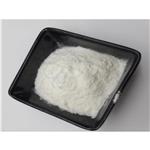
US $150.00/kg2025-11-25
- CAS:
- 1592-23-0
- Min. Order:
- 1kg
- Purity:
- 99%
- Supply Ability:
- 20tons
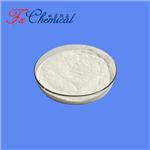
US $0.00/KG2025-04-21
- CAS:
- 1592-23-0
- Min. Order:
- 1KG
- Purity:
- 98%min
- Supply Ability:
- 30tons/month

